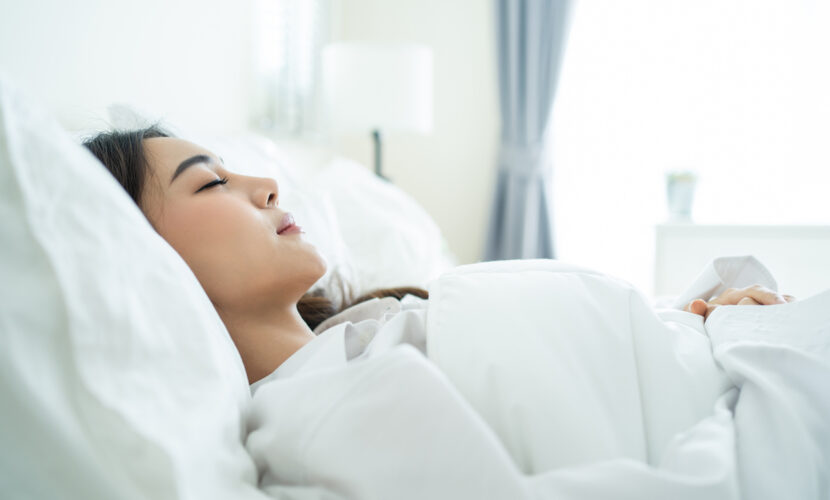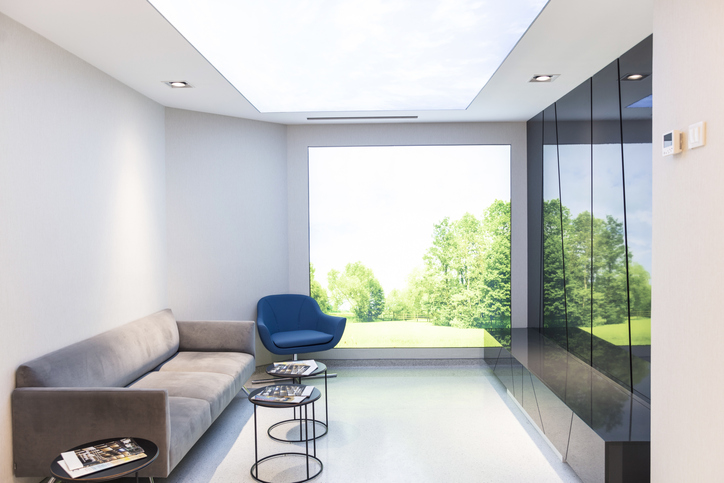Sleep is more than just rest. Its effects on skin health, mental stability, and beauty are gaining attention. So the question is: "Can improving sleep quality also have cosmetic benefits?" To answer this question, here we delve into the close relationship between sleep and beauty. We will explain how sleep deprivation affects our appearance and specific ways to improve sleep quality from an expert's perspective. Get your beauty with good sleep.

Graduated from the Faculty of Medicine, National Kumamoto University. After serving as the director of major beauty clinics in Japan, etc., he opened Aladdin Aesthetic Clinic in 2023. He is a professional in aesthetic medicine with a doctorate in anti-aging research and many years of experience. With the motto of "Toward the realization of cosmetic medicine without lies," he aims to be the "Only One" together with his patients.
In fact, the relationship between sleep and beauty is deep.

In the world of beauty and health, "sleep quality" is a very important factor. A good night's sleep not only relieves fatigue, but also has a significant impact on skin health.During deep sleep, the body is released from stress and natural repair processes take place.
During this phase, the secretion of growth hormones is stimulated, which promotes skin cell repair and regeneration. This is essential for recovery from damage caused by ultraviolet radiation and environmental stresses during the day.
Negative effects of sleep deprivation on beauty
Sleep deprivation has serious effects on skin health, especially noticeable in skin aging. During sleep, cells are actively repairing and regenerating, and lack of sleep interferes with these processes. In particular, decreased collagen production reduces skin elasticity and is a primary cause of wrinkles and sagging skin. Sleep deprivation can also cause a reduction in the skin's natural barrier function, weakening the skin's resistance to external stimuli.
Lack of good sleep is also a major cause of skin irritation. Adequate sleep is essential because during sleep, skin inflammation is suppressed and the effects of stress on the skin are reduced. Lack of sleep can exacerbate the skin's inflammatory response, leading to skin problems such as acne, redness, and sensitivity. Hormonal imbalances can also occur, which can lead to skin problems.
Furthermore, dark circles and puffy eyes under the eyes caused by lack of sleep are a major cosmetic problem. This is primarily due to poor blood circulation and lymphatic stagnation, and lack of sleep worsens these circulations. Adequate sleep is important to promote blood and lymphatic circulation and to maintain the health of the skin around the eyes. Dark circles under the eyes are a cosmetic concern because they give a tired appearance and affect overall appearance.
Finally, during sleep, the skin's moisture balance is regulated and its ability to retain moisture is increased. However, lack of sleep can upset this balance, leading to dry skin. Dry skin weakens the skin's barrier function, making it vulnerable to external environmental stimuli. Dryness also promotes the appearance of fine lines and wrinkles on the skin and may accelerate the appearance of aging.
Importance of improving sleep quality
Improving the quality of sleep is essential not only for beauty, but also for overall health. Proper sleep balances the body and mind, strengthens the immune system, provides mental stability, and contributes to a better quality of life. In particular, deep sleep is necessary for skin rejuvenation and regeneration.
A constant sleep environment is important to improve sleep quality. Moderate darkness, quietness, and comfortable temperature settings contribute to good sleep. A relaxing routine before bed and reduced screen time before sleep can also help. Healthy eating habits and regular exercise can also help improve sleep quality.
Sleep is the foundation of beauty and health. Good sleep plays an important role in improving not only your skin, but also your overall health. Paying attention to the quality of your daily sleep can help you lead a healthy and beautiful life.
How can we improve the quality of sleep that can further enhance beauty benefits?

Good sleep is crucial for beauty and health. Here are some expert-recommended ways to improve sleep quality. By incorporating these methods, you will wake up more refreshed and have healthier skin.
Improvement of Sleep Environment
In addition to selecting a quality mattress and pillow, choosing the right fit is critical to creating a comfortable sleeping environment. A mattress that provides the right firmness and support for your body is ideal.
The ideal bedroom temperature is about 18-22 degrees Celsius, but it is also important to control the humidity appropriately to avoid excessive dryness in the winter. Keeping the bedroom as dark and quiet as possible will make it easier to fall into a deep sleep. Consider using blackout curtains or earplugs.
Pre-Sleep Routine and Its Effects on Beauty
Relaxation time before bed can help relax the body and mind and improve the quality of sleep. Meditation, a relaxing bath, or light stretching can help.
Although smartphones before bed have become the norm these days, you can improve the quality of your sleep by refraining from using digital devices for an hour before bed. Blue light interferes with sleep, so use this time for reading and relaxation.
Maintain a consistent schedule
Going to bed and waking up at the same time each day helps regulate the body's internal clock, or body rhythm. This regular rhythm promotes deep sleep and a refreshing awakening the next morning.
A major change in sleep schedule on weekends can disrupt the body's internal clock and cause so-called "social jet lag. Therefore, it is advisable to maintain the same sleep schedule on weekends as on weekdays.
Ensure adequate sleep
The recommended amount of sleep for adults is 7-8 hours per night, but this varies from person to person. It is important to find the amount of sleep your body feels most comfortable with and maintain it. Pay attention to the quality of your sleep and create an environment that ensures quality sleep.
A good bedroom environment, stress management, proper exercise and a balanced diet are important to improve sleep quality. Increasing activity during the day and reducing caffeine and alcohol intake can also help improve sleep quality.
Good diet and nutrition will improve sleep quality.

Good sleep is an essential component of a healthy lifestyle. And diet and nutrient intake play a critical role in improving sleep quality. Proper nutrition can naturally improve sleep quality.
Diet and nutrients effective in improving sleep quality
A diet containing the right nutrients is important for good sleep. In particular, tryptophan, magnesium, and calcium are known to contribute to improved sleep quality.
| nutrient | role | Food Examples |
|---|---|---|
| tryptophan | Amino acids necessary for serotonin synthesis, relaxing effect | Turkey, chicken, nuts, beans, cheese |
| magnesium (Mg) | Muscle relaxation, calmness of the nervous system | Spinach, pumpkin seeds, almonds, bananas |
| calcium (Ca) | Regulation of neurotransmitters, promotion of deep sleep | Dairy products, green vegetables, tofu, salmon |
- Foods containing tryptophan
Tryptophan is an important amino acid and is necessary for serotonin synthesis. Serotonin is a neurotransmitter that affects sleep quality and helps relax the body and mind. Tryptophan is abundant in turkey, chicken, nuts, legumes, and cheese, and consumption of these foods may improve sleep quality. - Magnesium-rich foods
Magnesium is a mineral that helps relax muscles and calm the nervous system. This promotes more comfortable sleep. Magnesium is found in spinach, pumpkin seeds, almonds, and bananas. - Foods containing calcium
Calcium regulates neurotransmitters and promotes deep sleep. Calcium, found in dairy products, green vegetables, tofu, and salmon, helps improve sleep quality.
Introduction of foods that help promote sleep
| foodstuff | effect | Description. |
|---|---|---|
| chamomile tea | Relaxation Effect | Calms the mind and body, leading to a state of relaxation |
| hot milk | Guidance to a comfortable sleep | Warm milk relaxes the body and mind and promotes sleep |
| kiwi | Improved quality of sleep | Regular intake is considered effective in improving sleep quality. |
Food choices are also important in promoting good sleep. Certain foods are known to contribute to relaxation and improved sleep quality. Here are some foods that have been shown to promote sleep.
- chamomile tea
Chamomile is considered a natural relaxant, making it an ideal relaxing tea before bedtime. The ingredients in chamomile calm the mind and body, leading to a relaxed state of mind. - hot milk
Hot milk taken before bedtime is said to help induce a pleasant sleep. This is believed to be due to the fact that warm milk relaxes the body and mind. - kiwi
The nutrients in kiwi may have the potential to improve sleep quality. Studies have shown that regular consumption of kiwi improves sleep quality.
Seasonal Sleep Care

Environmental factors that vary from season to season have a significant impact on the quality of sleep. Since Japan has all four seasons, it is a good idea to know the key points of sleep care for each season. Here we will discuss sleep care methods appropriate for spring, summer, fall, and winter, as well as how to deal with sleep problems specific to each season.
Spring Sleep Care
Spring is the primary season when allergies, such as hay fever, interfere with sleep. It is important to keep bedrooms clean to prevent allergies during this time of year. Regular cleaning and the use of air purifiers can help, and this will minimize the effects of allergens.
In addition, early morning awakenings due to early morning light can be a problem in the spring, as the sun rises earlier in the day. To solve this problem, using blackout curtains to keep bedrooms darker is an effective solution.
Summer Sleep Care
High summer temperatures and humidity can interfere with comfortable sleep. To maintain a comfortable bedroom temperature, the use of air conditioning or fans is recommended. This allows for proper temperature control and promotes deep sleep.
In addition, light, breathable bedding on summer nights helps prevent excessive sweating and provides a comfortable night's sleep.
Fall Sleep Care
Fall is the season of shorter daylight hours. Adequate exposure to sunlight helps regulate the body's internal clock and improves sleep quality. Exposure to natural light in the morning is particularly effective.
In addition, the cooler nights of fall make it easier to create a comfortable bedroom environment and provide the perfect opportunity for deep sleep.
Winter Sleep Care
In winter, cold weather can be a major obstacle to sleep. To alleviate this cold, it is important to have warm bedding and sleep comfortably at an appropriate temperature.
Winter is also a dry season, so the use of humidifiers and proper hydration can help reduce throat and nose discomfort and support comfortable sleep.
summary
Through the information here, we hope you have gained a deeper understanding of the close relationship between sleep and beauty. Improving sleep quality is essential for maintaining healthy skin and a beautiful appearance. We have introduced many ways you can start today to improve your sleep environment, nutritional intake, and use of the latest sleep technology. Seasonal care is also important. We hope that you will put them into practice today, improve the quality of your sleep, and take the first step toward beauty.
At Aladdin Aesthetic Clinic, based on our many years of experience in cosmetic medicine and cosmetic dermatology and the knowledge of our doctoral degree, we provide counseling that aims to be "only one", offering the best treatment for each person we meet. We offer only the necessary treatments without any unnecessary information or suggestions.
Feel free to use our official LINE account for 24-hour counseling and reservations. Please feel free to contact us for free counseling for the first time or if you have any concerns.





